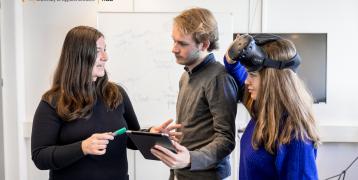Skills for innovation

Human capital affects innovation and economic growth. An increase in human capital may induce a rise in the number of innovative entrepreneurs and products, thus indirectly spurring economic development through the channel of innovation. That combined with skill formation can act as double engines of growth. As a result, a skilled workforce is essential for the creation, transfer, and diffusion of knowledge and provides a foundation for innovation.
For that, regional policymakers are designing regional skills policies to accelerate the innovation process, reduce skills mismatch, and to contribute to transformative changes. In the European Union (EU), the European Skills Agenda will be central in driving the Covid-19 economic recovery and promoting the development of new skills for the twin transition toward digital technology and climate neutrality. The regional approach to find effective policy solutions for developing new skills to respond to European challenges makes Interreg Europe projects the ideal space for policy learning.
This policy brief explores the importance of human capital and skills for innovation. It also features five policy recommendations using the experience of Interreg Europe projects dealing with the development of skills for innovation to offer regions a path towards better regional innovation policymaking.
To know more about successfully upskilling the human capital in the innovation sector, explore the policy brief on skills for innovation.
Policy brief on skills for innovation
Policy brief on skills for innovation
Featured good practices





